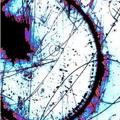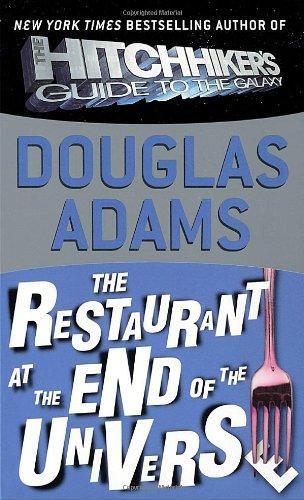Sir Voe quoted The Restaurant at the End of the Universe by Douglas Adams (Hitchhikers Trilogy of Five, #2)
One of the major problems encountered in time travel is not that of becoming your own father or mother. There is no problem in becoming your own father or mother that a broad-minded and well-adjusted family can't cope with. There is no problem with changing the course of history — the course of history does not change because it all fits together like a jigsaw. All the important changes have happened before the things they were supposed to change and it all sorts itself out in the end.
The major problem is simply one of grammar, and the main work to consult in this matter is Dr. Dan Streetmentioner's Time Traveler's Handbook of 1001 Tense Formations. It will tell you, for instance, how to describe something that was about to happen to you in the past before you avoided it by time-jumping forward two days in order to avoid it. The event will be described differently according to whether you are talking about it from the standpoint of your own natural time, from a time in the further future, or a time in the further past and is further complicated by the possibility of conducting conversations while you are actually traveling from one time to another with the intention of becoming your own mother or father.
Most readers get as far as the Future Semiconditionally Modified Subinverted Plagal Past Subjunctive Intentional before giving up; and in fact in later additions of the book all pages beyond this point have been left blank to save on printing costs.
The Hitchhiker's Guide to the Galaxy skips lightly over this tangle of academic abstraction, pausing only to note that the term "Future Perfect" has been abandoned since it was discovered not to be.
— The Restaurant at the End of the Universe by Douglas Adams (Hitchhikers Trilogy of Five, #2)

